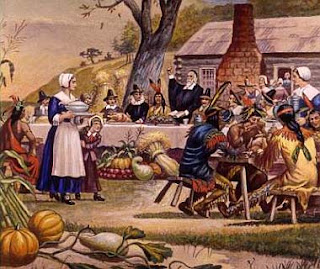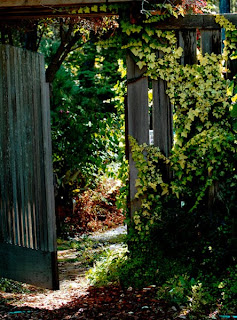 |
| Christmas at the Metzger farm: Cousin Doris, myself, Paige, and Mom |
My parents divorced in 1971. I was 9 years old. My brother, Eric, was seven; my sister, Paige, was five. In that era, we were living in Klamath Falls. It was an emotionally turbulent time, as one might expect. Perhaps my parents did not have the worst divorce in history, but there were more than enough traumatic, high-drama incidents to give all involved some lasting psychological scars. Trust me.
As was the norm back then, we three kids continued to live with Mom while Dad moved into an apartment. But Mom, consulting with her parents,
Bob and
Gertrude, soon decided to move us back to her hometown, Salem. As a single mother,
Mom recognized the need to develop marketable skills (as the saying goes), and so she enrolled at Oregon College of Education (now Western Oregon State College) in nearby Monmouth to earn her teaching degree.
And so, that's where we lived from 1972 thru 1976: in the Metzger rental home on Doughton Street in southeast Salem.
Looking back on my boyhood years, that short 4 year period has a special place in my memories. Those days when Mom, Eric, Paige, and I, and our beloved beagle, Trixie, lived in that little house was a mostly happy time. It was perhaps as close as I would ever come to having a "traditional" family life. And the bonds that Mom, Eric, Paige, and I forged remain as strong today as they ever were back then. But it was not an easy time. There was little money to be had, and even though as kids we didn't carry the brunt of that worry, we were certainly aware of it.
Dad, even though he stayed in
Klamath Falls, remained involved in our lives and diligently paid Mom the court-awarded $217 per month in child-support. And he never neglected to help out in other ways, too. But still, there wasn't much. In fact, we even partook of the Oregon Food Stamps program to help us make it from month to month. Mom was, after all, attending college full time and working a part time job at South Salem High School and raising three kids.
And she did a great job. Not only did she make sure we were fed and clothed, but she kept track of us and did all she could so that we could participate in extra-curricular activities. I was a Cub Scout; I had private guitar lessons; and I participated in my school's football program. (Go Leslie Lions!) Grandma and Grandpa helped, too. It would have been impossible to live as well as we did without their love and support.
 |
| A blurry picture of Eric and Paige, with Trixie |
As the oldest child (and a boy at that), I took upon myself the role of "man of the house." At least, in my own mind. I'm sure other people who come from single-parent households will understand. I fiercely defended my younger brother and sister from other kids. And I can honestly say that I tried not to make things difficult for Mom, even though I now have many regrets about the hurt that I caused her with some of my
behavior.
One spring afternoon, Eric and I were hanging out listening to
Beatles records in the den, when we heard Mom calling to us from the backyard. "Dade! Eric! Come here!" We chose to remain deaf, supposing that Mom was calling us to come help with some chore or another.
But then the call came again: "Dade! Eric! Come
here!" Mom's voice was distraught, tearful. It had a pleading quality that brought back memories of some of the very worst dramas that played out in her divorce with Dad. In an instant we were on our feet and running down the stairs. I remember the fear rising in my throat when I heard the distress in my mother's voice.
"What
is it?" I called. I was afraid.
Eric and I ran down the stairs and out onto the back patio. Mom and Paige, tears streaming down their faces, were restraining our dog Trixie. "It's suffering!" Mom sobbed.
Then I noticed that there was a squirrel writhing on the cement near their feet. It had been mauled severely by our dog. It dragged its back legs along as it tried to move away from us. One of its eyes had popped out of its socket and hung like a single blue grape from a thin, fleshy cord.
"Dade," Mom cried. "Put it out of its misery." She held out a shovel, handle toward me. When I hesitated, she shook it at me. "Here!"
I stood for a moment and stared, first at the dying squirrel, then at the shovel that Mom held out toward me. And, in that instant, all my illusions of being the man of the house melted away. Just a silly game of make-believe. I shook my head, tears sprang to my eyes. "I can't," I whispered.
And we stood there, Mom and I, not knowing what to do, until my brother Eric stepped forward. Ten-year-old Eric. He was crying now, too. His face was red and tears streamed down his cheeks. He seized the shovel out of Mom's hand, raised it above his head with both hands, and with an anguished cry brought it down on the mutilated squirrel. When he lifted the blade, the squirrel lay dead on the concrete. Blood ran from its snout.
 |
| As much of a man as I could have hoped, I suppose |
In the raw emotional silence that followed, we four stood there, staring at the dead animal, experiencing a ragged exhaustion with which we were well-acquainted. (As I said, my parents had divorced only a few years earlier.)
Then Mom asked me to bury the squirrel. "I think Eric has been through enough," she said.
I dug a hole in the far corner of the back yard. I tried to make it deep enough that Trixie would not dig it up later. Then, gently as I could, I scooped the dead squirrel into the shovel, carried it across the grass and laid it in the dirt. I covered it up with the moist, black soil.
It was what the man of the house would do.
































